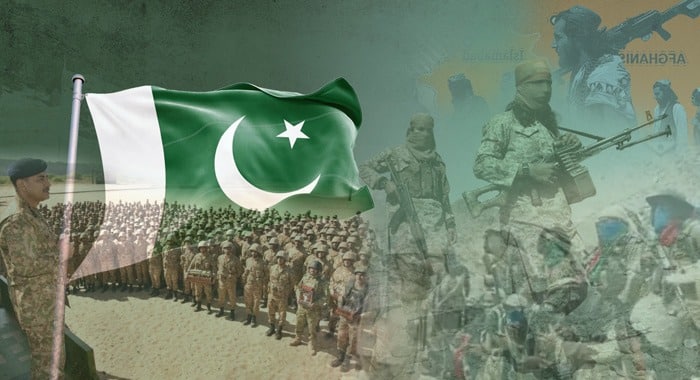Pakistan’s security forces have once again unveiled credible evidence pointing to India’s direct involvement in supporting anti-state terrorist groups, particularly the outlawed Tehreek-e-Taliban Pakistan (TTP), referred to by the state as “Fitna al-Khawarij”, and the Balochistan Liberation Army (BLA), declared as “Fitna-e-Hindustan”. These terror outfits have carried out multiple deadly attacks across the country in recent weeks, with planning, financing, and safe havens originating from across the western border in Afghanistan, with Indian intelligence agency RAW allegedly playing a central role.
Recent Attacks Linked to Indian-Backed TTP & BLA
May 29, Rawalakot, Kashmir: In a targeted operation, four khawarij were neutralized by Pakistani forces. The confrontation led to the martyrdom of two police officers. Police Chief Abdul Jabbar stated that the terrorists were “operating under Indian influence” and were preparing for future coordinated assaults.
May 29, North Waziristan: A separate operation saw four security personnel martyred and five khawarij killed in a high-intensity exchange. This comes on the heels of a tragic drone strike in the same area two weeks prior that killed four children, an attack also blamed on Fitna al-Khawarij operatives backed by India.
May 6 & 10, Balochistan and Tribal Areas: Twin attacks carried out by the banned TTP and BLA killed multiple Pakistani soldiers. Investigations revealed Indian financial and logistical support enabled these synchronised bombings.
May 21, Khuzdar, Balochistan: In one of the most heart-wrenching incidents, eight schoolchildren were martyred in a suicide bombing targeting a school bus. Pakistani intelligence services have implicated India-backed proxies in orchestrating the attack.
RAW’s Direct Role and the Afghan Nexus
Pakistani officials allege that the planning, arming, and financing of these attacks were facilitated from Afghan soil, where Fitna al-Khawarij has established strongholds post-2021 with tacit tolerance from segments of the Taliban-led government.
What’s more alarming, according to senior Pakistani security officials, is that the relationship between the TTP and BLA has now evolved into a strategic alliance, both groups reportedly cooperating and receiving backing from India’s intelligence agency, RAW.
Balochistan’s Interior Minister referred to this growing nexus as “an Indian investment in destabilizing Pakistan.” This shift, authorities argue, marks a significant departure from past Afghan-based militancy and reflects a new hybrid proxy war directly funded and coordinated by India.
Proofs Beyond Allegations
These are not mere political accusations. Pakistan’s civil and military leadership have presented documented evidence to international partners and organisations, confirming Indian complicity in recent terrorist attacks. This includes:
Forensic tracking of funds and communications;
Recovered equipment with Indian markings;
Intercepted instructions from Indian handlers;
Statements from captured militants.
These findings have been shared with the UN, OIC, and other diplomatic forums to press for international accountability.
Regional Implications and Rising Civilian Toll
This new wave of terrorism is not only a threat to Pakistan’s internal stability but also to the broader region’s peace and economic development. The loss of schoolchildren, soldiers, and police personnel has triggered public outrage and increased pressure on the government to respond decisively.
Pakistan’s military spokesperson recently emphasized:
“We are not just fighting terrorists, we are confronting a state-sponsored hybrid war. The enemies of Pakistan are waging an undeclared war through proxies—but we will defeat them.”
Time for the World to Listen
Pakistan has long warned the international community about India’s role in destabilizing South Asia through covert terrorism. The latest evidence reinforces what Islamabad has been saying for years: India, under the cover of regional diplomacy, is actively sponsoring terrorism in Pakistan.
It is time for the global community, especially human rights organisations and strategic partners, to hold India accountable for fueling violence through proxies like the banned TTP and BLA. Pakistan, meanwhile, remains committed to regional peace, but not at the cost of its sovereignty or innocent lives.





